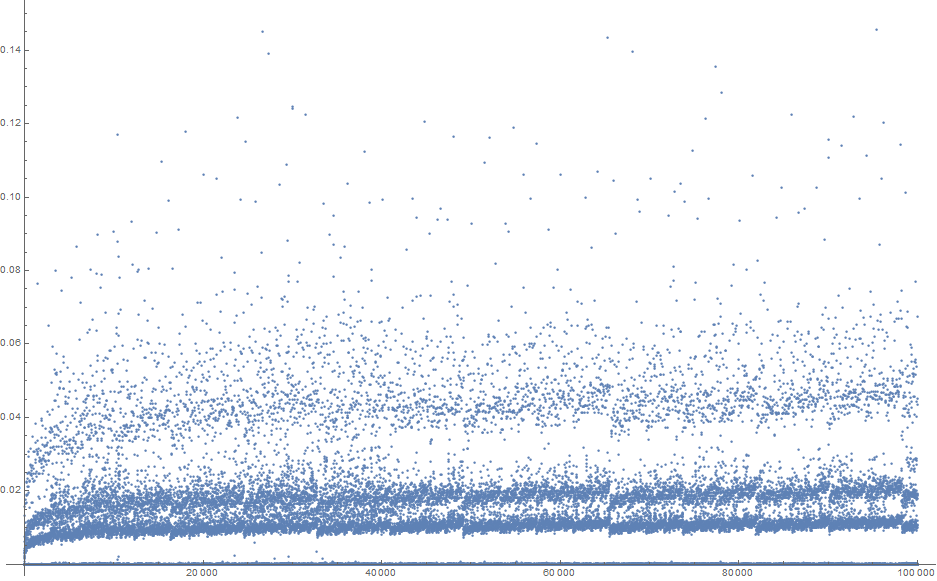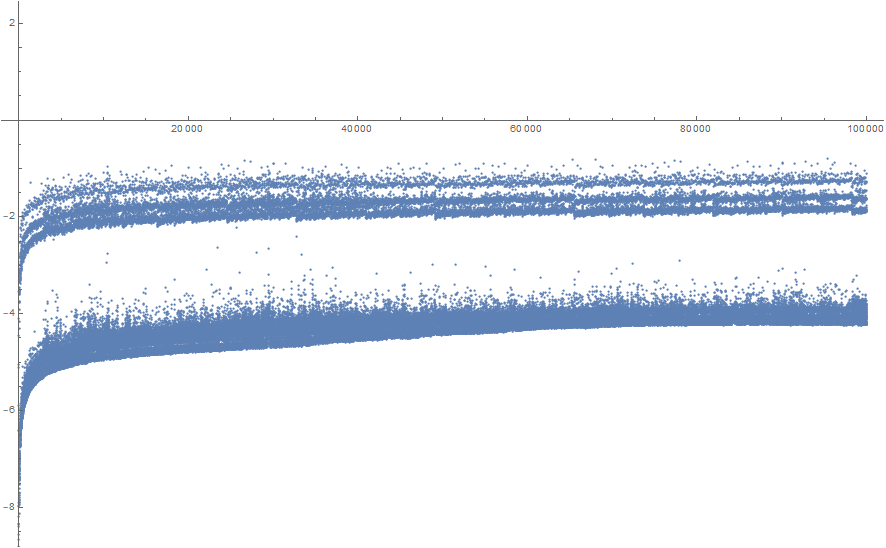polmul[f_, g_, r_, n_] := Mod[f.NestList[RotateRight, g, r - 1], n]
matmul[a_, b_, r_, n_] := Mod[Inner[polmul[#1 Mod[
{{polmul[a[[1, #21]], b[[1, 1]], r, n] &+ polmul[a[[1, a2]], b]b[[2, 1]], r, n],
polmul[a[[1, 1]], b[[1, 2]], r, n] + polmul[a[[1, 2]], b[[2, 2]], r, n]},
{polmul[a[[2, 1]], b[[1, 1]], r, n] + polmul[a[[2, 2]], b[[2, 1]], r, n],
polmul[a[[2, 1]], b[[1, 2]], r, n] + polmul[a[[2, 2]], b[[2, 2]], r, n]}}, n]
matsq[a_, r_, n_] := matmul[a, a, r, n]
matpow[a_, k_, r_, n_] := If[k == 1, a,
If[EvenQ[k],
matpow[matsq[a, r, n], k/2, r, n],
matmul[a, matpow[matsq[a, r, n], (k - 1)/2, r, n], r, n]
]
]
xmat[r_, n_] :=
{{PadRight[{0, 2}, r], PadRight[{n - 1}, r]},
{PadRight[{1}, r], ConstantArray[0, r]}}
isprime[n_] := With[{r = smallestr[n]},
If[r == 0, n == 2,
With[{xp = matpow[xmat[r, n], n - 1, r, n]},
Mod[RotateRight[xp[[1, 1]]] + xp[[1, 2]], n]
=== PadRight[Append[ConstantArray[0, Mod[n, r]], 1], r]
]
]
]
it obviously will eventually cross the zero line (when the time needed exceeds one unit)
მამუკა ჯიბლაძე
- 18.4k
- 3
- 85
- 175


